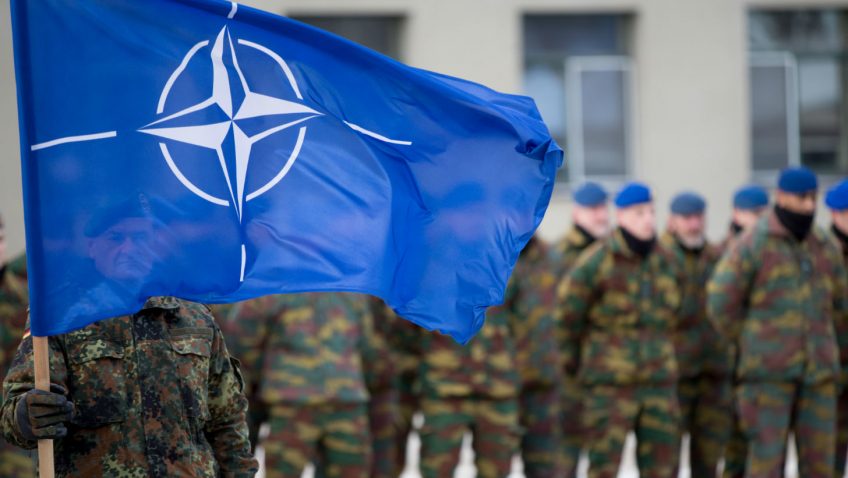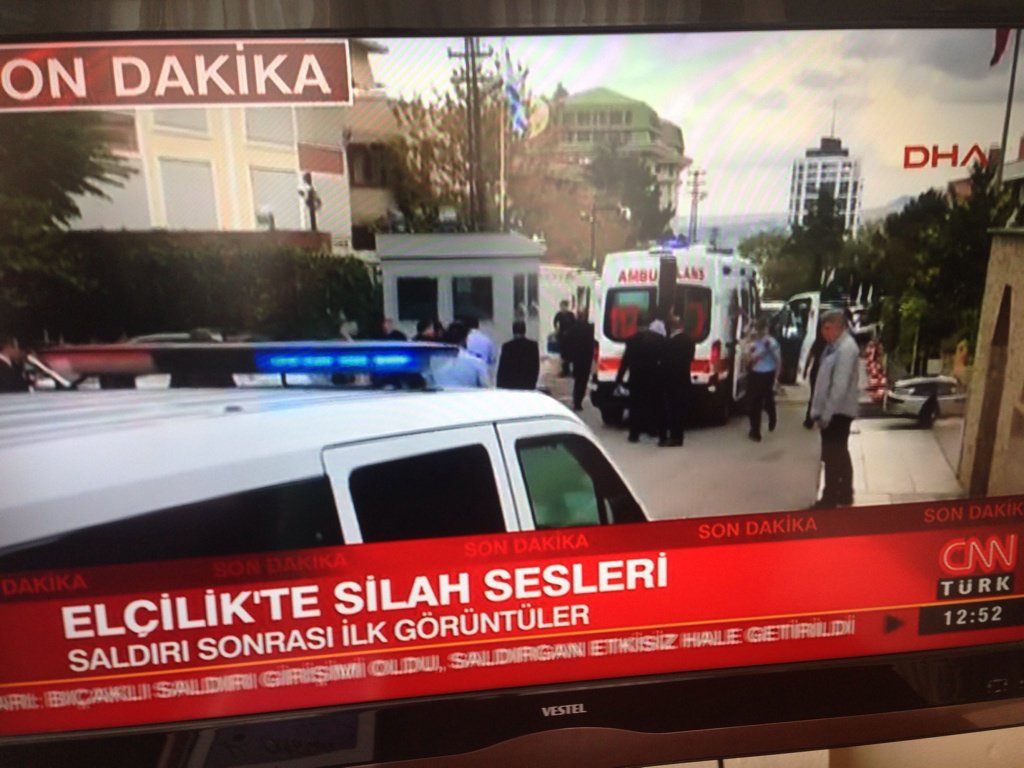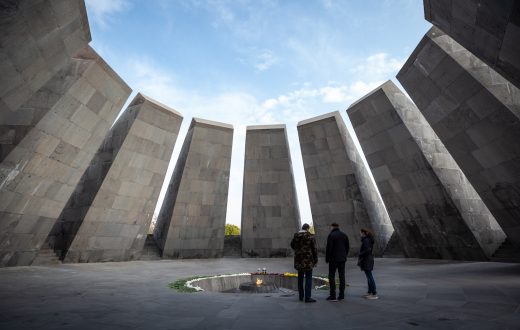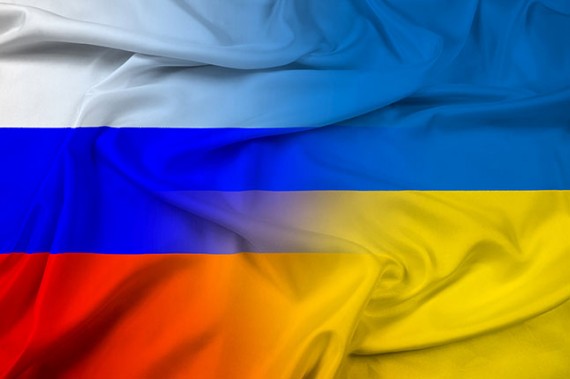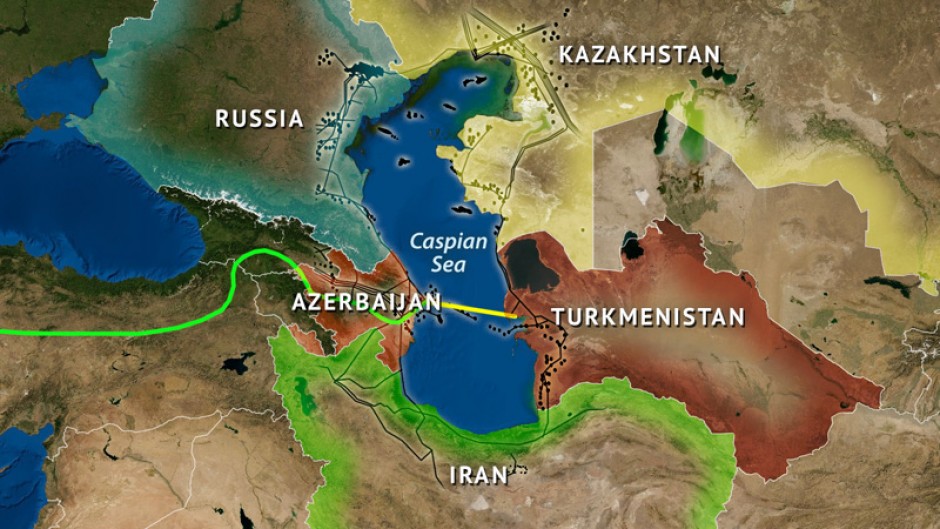Tensions between the United States and two key allies in NATO , Germany and Turkey, threw a chill on Wednesday’s celebrations of the Alliance’s 70th anniversary, despite calls for “unity” in the face of the Russian “threat”.
However, everything had started well.
While some feared that he would be a troublemaker after constantly pushing NATO to establish a “fairer burden sharing”, Donald Trump on Tuesday gave the Allies an unprecedented satisfaction for their financial effort –which the President of the United States certainly gave himself the credit.
Finally, it was its Vice-President, Mike Pence, who raised his voice on Wednesday as the foreign ministers of the 29 countries of the North Atlantic Treaty Organization met for two days in Washington.
First target: Germany, accused of continuing the controversial Nord Stream 2 gas pipeline project with Russia and not meeting the target of a defence budget of 2% of gross domestic product (GDP) by 2024.
“It is simply unacceptable that the first European economy continues to ignore the threat of Russian aggression and neglects its own defence and our common defence,” said Mike Pence. “Germany must do more.”
While promising to increase military spending to 1.5% of GDP in 2024, German diplomat Heiko Maas criticized an accounting vision, while NATO is “above all an alliance of values”.
“Those who talk about burden sharing must look at the full spectrum of resources, means and contributions,” he argued, referring to “solidarity with our American friends” after the September 11 attacks and the German contribution to the Allied operation in Afghanistan.
– S-400 or F-35? –
Between the United States and Turkey, it is at first sight a battle of obscure acronyms that is being played out: Ankara has undertaken to buy, at the same time, Russian S-400s and American F-35s, which does not please Washington at all.
But the stakes are strategic. The S-400s are a Russian anti-missile system, which is in itself an affront to an alliance born to counter the Soviet Union. Above all, the Americans fear that he will uncover the technological secrets of their F-35s, ultra-sophisticated fighter jets.
The Trump administration therefore suspended this week the delivery of equipment related to its aircraft to the Turkish government, “until” it gives up “unequivocally” on the S-400s.
“We will not go back,” replied Turkish diplomacy chief Mevlut Cavusoglu.
For Mike Pence, “Turkey must choose: does it want to remain a crucial partner in the best military alliance in history, or jeopardize the security of that partnership through thoughtless decisions that undermine our alliance?
Turkish Vice President Fuat Oktay’s immediate response on Twitter. “The United States must choose, do they want to remain Turkey’s ally, or jeopardize our friendship by forming a common front with terrorists who undermine the defence of its ally,” he questioned in an allusion to the American partnership with Kurdish forces in Syria.
The meeting in Washington between Mevlut Cavusoglu and his American counterpart Mike Pompeo did not seem to ease the tensions. According to the US diplomatic report, the Secretary of State warned Ankara about the “potentially devastating consequences of unilateral Turkish military action” in northeastern Syria.
– New Cold War? –
Faced with these differences, NATO Secretary General Jens Stoltenberg called for “preserving unity”.
“We have overcome our disagreements in the past and we must overcome our differences in the future,” he said in a solemn speech to the US Congress.
While Donald Trump has more than once doubted the usefulness of the Alliance, Jens Stoltenberg earned standing ovations from Republican and Democratic parliamentarians by saying that NATO was “good for the United States”, because “it is good to have friends”. And recalling the “solemn promise” made on April 4, 1949 in the American capital by the twelve founding countries: “One for all, all for one”.
The dissensions have overshadowed the “threat” that Russia continues to pose to Americans and Europeans, but it will be a priority as of Thursday, with the adoption of measures to strengthen surveillance in the Black Sea.
“We don’t want a new Cold War,” but NATO doesn’t
Translated with www.DeepL.com/Translator

